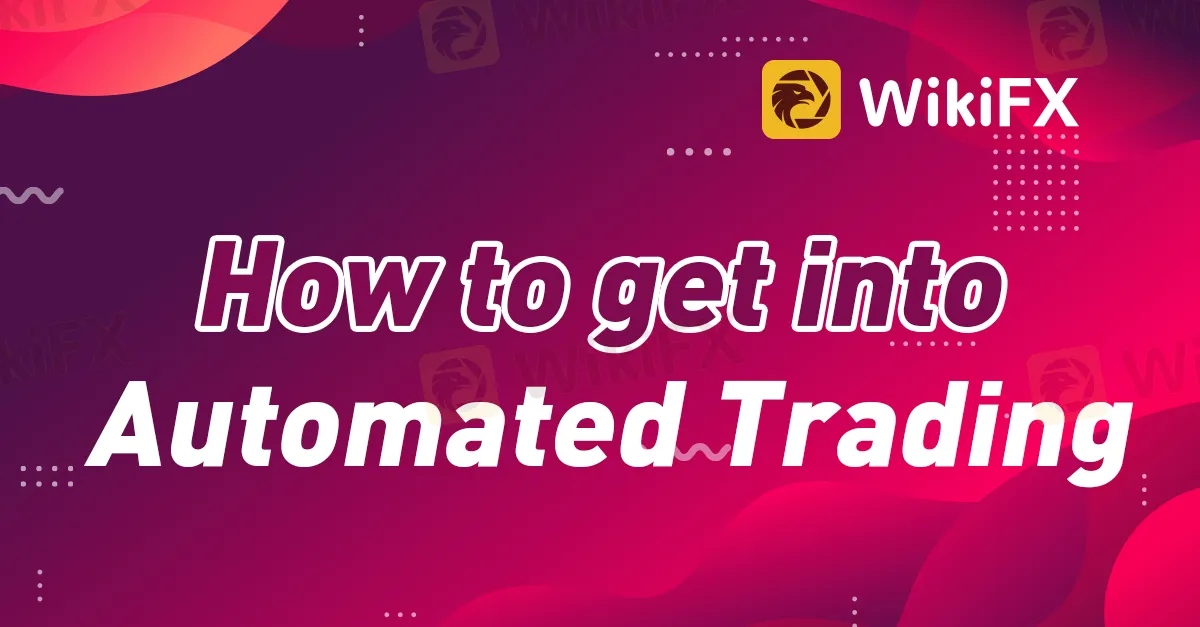简体中文
繁體中文
English
Pусский
日本語
ภาษาไทย
Tiếng Việt
Bahasa Indonesia
Español
हिन्दी
Filippiiniläinen
Français
Deutsch
Português
Türkçe
한국어
العربية
How to get into Automated Trading
Abstract: In this article, we will explore the best ways to get into automated trading and the steps you need to take to get started.

Automated trading has become increasingly popular over the years, allowing traders to take advantage of algorithmic models and technical indicators to buy and sell securities on the financial markets. And with the rise of internet technologies that can do the programming for you, you do not need a degree in IT to whip up a good trading program. In this article, we will explore the best ways to get into automated trading and the steps you need to take to get started.
1. Develop a trading strategy
Before you can start executing trades using an automated system, you need to have a strategy in place. A trading strategy outlines your entry and exit rules and helps you decide when to buy and sell securities. To develop a strategy, you need to have a good understanding of your risk tolerance, the market conditions, and the securities that you want to trade. You also need to familiarize yourself with on simple coding mechanics. Or Google free trading bots that you can edit for your own use
2. Choose a trading platform
Once you have developed your trading strategy, its time to choose a trading platform that will allow you to automate your trades. To do this I recommend you use WikiFx. This platform will allow you to compare broker to find the regulated brokers with the best conditions.
3. Select a data provider
To automate your trades, you will need access to real-time market data. Most trading platforms offer this service, but you may also want to consider subscribing to third-party data providers for additional data sources and analysis. I also recommend WikiFx in this case because they offer a VPS with excellent trade executions so you will be able to let your bot trade 24/7.
4. Backtest your strategy
Before you start trading with real money, its important to backtest your strategy using historical market data. This process allows you to see how your strategy performs under different market conditions and identify any weaknesses that you can improve upon.
5. Optimize and refine your strategy
Once you have backtested your strategy, you may need to optimize and refine it to improve performance. This can involve adjusting your entry and exit rules, using different technical indicators, or tweaking your risk management rules.
6. Monitor your strategy
Automated trading systems require constant monitoring to ensure that they are performing as expected. You will need to keep an eye on your systems performance, adjust settings as necessary, and stay up-to-date with any changes to the market or your data sources.
7. Start small and grow your account
Once you are ready to start trading with real money, its important to start small and scale up gradually. This allows you to test your strategy and reduce the risk of large losses. As you gain experience and confidence in your system, you can gradually increase the size of your trades and grow your trading account.
In conclusion, automated trading can be a powerful tool for traders who want to take advantage of algorithmic models and technical analysis. By following these steps, you can develop and test a trading strategy, choose a trading platform and data provider, and start trading with confidence. Remember to monitor your systems performance and adjust your strategy as necessary to ensure long-term success.

Disclaimer:
The views in this article only represent the author's personal views, and do not constitute investment advice on this platform. This platform does not guarantee the accuracy, completeness and timeliness of the information in the article, and will not be liable for any loss caused by the use of or reliance on the information in the article.
Read more

IronFX Launches $500K Grand Trading Slam with Big Prizes
Join IronFX’s $500K Grand Trading Slam for a chance to win major cash prizes. Compete in trading challenges and rank up to the grand prize! Start trading today.

What Happens if A Broker Goes Bust?
For traders, understanding what happens when a broker collapses is crucial. It serves as a reminder that choosing the right broker involves more than just attractive spreads and swift execution; it’s about safeguarding funds in case things go wrong.

Trading is Not Gambling—Unless You Make It So
In the world of online trading, a common misconception persists: trading is often seen as no different from gambling. This belief is particularly prevalent among newcomers, who may view the financial markets as a fast-paced game where winning is just a matter of luck. But trading, when done correctly, is far from mere chance!

Do You Really Know Your Trading Game?
This article challenges traders to examine whether their actions are driven by emotions or disciplined strategy, emphasizing the importance of planned risk management over impulsive, adrenaline-fueled decisions for sustainable success.
WikiFX Broker
Latest News
BSP Shuts Down Uno Forex Over Serious AML Violations
ACY Securities Expands Global Footprint with South Africa Acquisition
Rupee gains against Euro
Tokyo Police Arrest 4 for Unregistered FX Trading Scheme
Axi Bids AUD 52M to Acquire Low-Cost Broker SelfWealth, Outbidding Competitor Bell Financial
Crypto Influencer's Body Found Months After Kidnapping
US Regulators Tighten Oversight on Bank Anti-Money Laundering Efforts
Doo Group Expands Its Operations with CySEC License
RM900,000 Scammed: The Hidden Dangers of Online Investment Schemes
5 Advantages of Choosing a Regulated Broker
Currency Calculator


